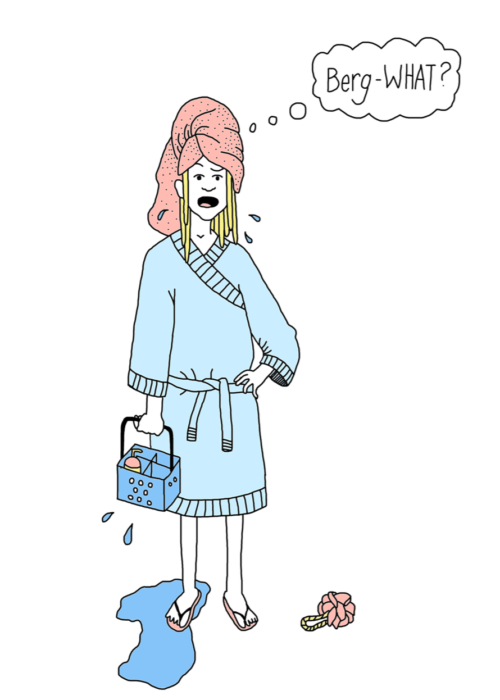
I was half-naked when I learned that I don’t know how to pronounce my last name. Two decades of what I took as truth unraveled in my dorm hallway as I stood in only a bathrobe, soggy shower shoes, and a towel teetering on my head. New to living on my own, I had locked myself out of my single and had to shamelessly knock on the door of a neighbor I had met twenty minutes prior and promptly beg to borrow his phone to call P-Safe. As we waited for P-safe, we made pleasant small talk. He happened to be from Holland, and, after seeing the nametag next to my door, logically proceeded to pronounce my last name the Dutch way. I had always known that my family had Americanized my last name, Berghuis, but I was shocked that even when my friendly neighbor tried to teach me to pronounce it the authentic way, I was unable to say it.
I’ll start by admitting my last name, Berghuis, is incredibly hard to pronounce, even after the family Americanized it a few generations ago. I grew up with announcers at ice skating competitions pronouncing it Berg-HWAAH, Berg-H-WHEE, and even Berg-GOOSE. Before I jump into origins and history, I must clear the air on my two-decade pronunciation debacle. I pronounce my last name Berg-HICE. It rhymes with ice and I’m an ice skater. While this is the pronunciation I use, it is not the correct pronunciation. The proper way to say it is the Dutch way, and growing up mostly in America, I do not have the phonemes in my vocabulary to pronounce the guttural Dutch “gh.”
The idea of being unable to say one of the main words that others are supposed to use to define you is confusing. Your name is your main identifier, and being unable to say it is displacing. In my particular case, it is also ironic. “Berghuis” itself is a description of a location.
“Berghuis” is Dutch, and translates to “house on hill” or “hill house.” The vague family history is that my ancestors in the Netherlands had a castle on a hill. It really couldn’t have been much of a hill, considering it was Holland, where much of the country is below sea level. It’s also very debatable if it was in fact a castle. I’d like to imagine the family history being shared around a fire, because the best stories are shared around a fire, but alas. I learned my family history from an email sent by a distant relative I had never met.
There once were two brothers. Together, they became quite prosperous mining peat, which was the oil of the eighteenth century. One brother stayed in the Netherlands. The other brother gambled and drank away the family fortune. And then died. (I’m a descendant of the drunk.) Disgraced from the family, the son of the drunk fled to the promised land of Minnesota. From there, part of the family migrated to Canada, and a century later, my Canadian father migrated to Baltimore, Maryland. In Baltimore, he married my mother, had me, and lived in a house on a hill.
I grew up just outside of Baltimore in that same house on a hill. My hill house was a hot spot for sledding in the winter. All the neighborhood kids would conjugate at my house when the schools were closed for sledding, snowmen, and hot chocolate. Baltimore is not the only place I have resided in a house on a hill. I spent many summers with family in a Canadian cottage on the St. Lawrence river (the cottage is, you guessed it, on a hill). As a kid I trained as a figure skater in Lake Placid, New York, home of the 1932 and 1980 Olympics. I lived with my coach and friends in what we called the “Mountain House”. We entered the Saturday Night Ice Show as representing the “Mountain House Figure Skating Club” rather than the names of our official skating clubs.
The definition of my last name has stalked the family from the Netherlands, to Minnesota, to various parts of Canada, to Baltimore and Lake Placid. But maybe this is dramatic. It’s not like hills are all that rare. It’s normal to look for a form of connection. While I cannot pronounce my last name the way it was meant to be pronounced, as I was notified in only my bathrobe by a freshman while locked out of my home away from home, I’ve managed to scavenge a way to be tied to my roots through it’s meaning.

Leave a Reply